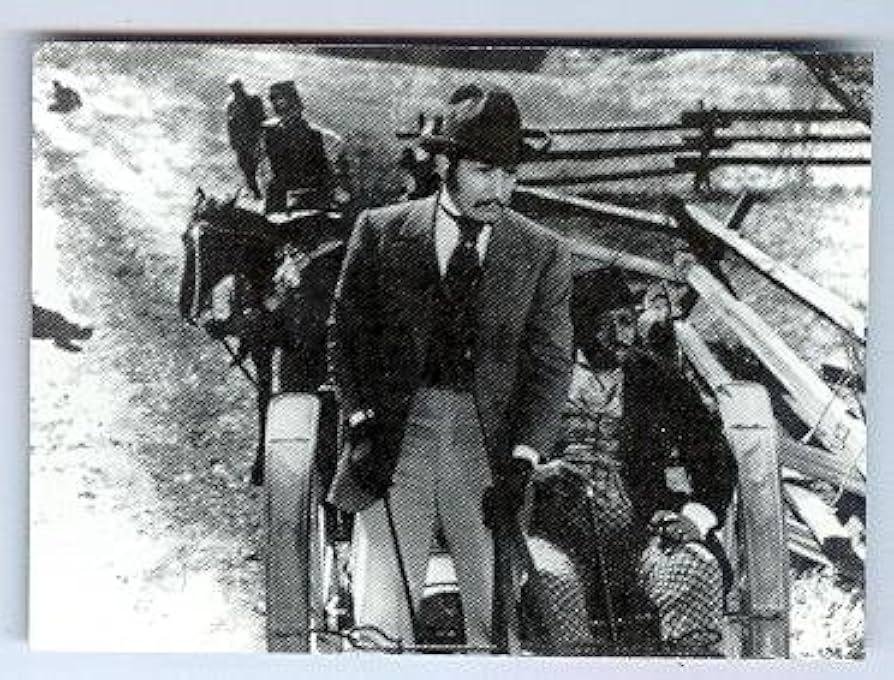1. “In the ruins of war, some see despair; I see opportunity.”
2. “Every piece of land hides a story – and a fortune.”
3. “A man’s worth isn’t measured by his loyalty, but by his adaptability.”
4. “The South’s grandeur can’t hide its decay; seize what you can.”
5. “They call me ruthless; I call myself a survivor.”
6. “In times of peace, be wary; it’s when fortunes shift.”
7. “The heart of the South may be wounded, but my ambition is relentless.”
8. “Fortunes are made by those with the courage to claim them.”
9. “Even the noblest estates cannot defend themselves from a determined mind.”
10. “Where others see ashes, I see the foundations for empires.”
11. “Land is power; own enough, and you control destinies.”
12. “The past struggles; the future belongs to the bold.”
13. “Opportunity and greed: two sides of the same coin.”
14. “Loss is but the first step towards a greater gain.”
15. “My allegiance lies where the prospects are greenest.”
16. “Pride blinds; ambition guides.”
17. “The old South is a relic; the new South must be built by visionaries.”
18. “Survival isn’t a choice; it’s an instinct.”
19. “There’s no romance in ruin, only potential.”
20. “A strong will is the greatest inheritance.”
21. “Every ended era signals the rise of the pragmatic.”
22. “Forge your own legacy from the ashes of others.”
23. “Only fools dismiss the aggressive pursuit of progress.”
24. “Where tradition falters, innovation flourishes.”
25. “Even in the shadow of opulence, the pragmatic rise.”
26. “Adaptation is the true mark of success.”
27. “Rebirth requires sacrifice; never shy from what’s necessary.”
28. “The world’s greatest fortunes often carry the weight of betrayal.”
29. “One’s station is but a starting point; destiny is crafted.”
30. “Glory fades; tangible assets endure.”
31. “Resourcefulness is the path to wealth.”
32. “Old loyalties are luxuries in a changing world.”
33. “Persistence is the hallmark of those who prevail.”
34. “Land is the only true testament to power.”
35. “Ambition respects neither family nor friend.”
36. “Capture the moment, and a dynasty can begin anew.”
37. “The present belongs to those who act, not those who reminisce.”
38. “Remembered by none, but known by all.”
39. “Empires rise not from birthright, but from resolve.”
40. “Influence is won through determined will.”
41. “A vision unchallenged is a vision unfulfilled.”
42. “See potential where others see devastation.”
43. “True foresight recognizes no boundaries.”
44. “If wealth had a language, it would speak of courage.”
45. “Fortunes favor those who dare to seize them.”
46. “Strength lies not in heritage, but in determination.”
47. “The shadows of grandeur conceal opportunity for the astute.”
48. “In a world of ruins, the prepared mind is never lost.”
49. “Destiny bends to the will of the audacious.”
50. “The winds of change bow to none, but I ride their course.”
An In-Depth Analysis of Popular Fan Theories Surrounding Jonas Wilkerson from “Gone with the Wind”
“Gone with the Wind,” the epic historical romance by Margaret Mitchell, is renowned for its richly developed characters, each contributing intricately to the tapestry of the narrative. One such character, Jonas Wilkerson, though not the leading protagonist, has sparked fascinating fan theories over the years. Wilkerson, depicted as the disgruntled overseer of the O’Hara plantation, is often a subject of speculation due to his pivotal yet understated role in the story.
The Theory of Unacknowledged Ambition
One prominent theory suggests that Wilkerson harbors more ambition and cunning than the narrative credits him with.
The ‘Hidden Descent’ Conspiracy
Another widely discussed theory posits that Jonas Wilkerson’s underhandedness might have deeper roots than mere professional rivalry or personal slight.
The Archetypal Scapegoat Analysis
Some fans approach Wilkerson as a
Conclusion
The character of Jonas Wilkerson serves as a fascinating lens through which fans can explore the multifaceted themes of “Gone with the Wind.” Whether seen as a power-hungry schemer, a man with a secret lineage, or a victim of his time, Wilkerson’s complexity offers rich ground for interpretation and debate. These theories underscore the depth of Mitchell’s characters and the enduring allure of exploring their hidden dimensions.








